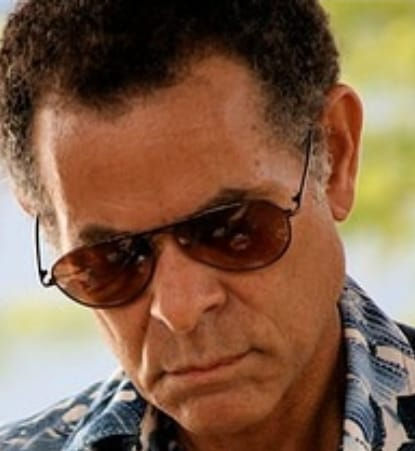Laurence 'Laurie' Stewart
- tcollins66
- Apr 3, 2025
- 3 min read
Updated: Jul 24, 2025
Charting New Waters: A Remarkable Journey in Jamaican Broadcasting
Laurence 'Laurie' Stewart embarked on a remarkable journey that would leave an indelible mark on the broadcasting landscape of Jamaica. Born in Essex, England, his early career set the stage for a life intertwined with engineering and media. Initially serving as a radar technician in the Royal Air Force, he soon gravitated toward the burgeoning world of television, honing his craft at EMI Electronics, a key innovator in the television industry in the United Kingdom.

At EMI, he played a pivotal role in managing Trans Europe Television, a large mobile unit comprising two vehicles that facilitated outside broadcasts across Europe. For several years, he found himself travelling extensively, primarily operating from Paris to Vienna, where he developed the expertise that would later serve him well in Jamaica. In his impressive stint, he not only orchestrated broadcasts but also ventured into Africa, establishing television studio equipment in Nigeria and working on projects in Denmark. This period of high-flying activity shaped his relentless pursuit of excellence in broadcasting.
In the late 1960s, Mr. Stewart caught the attention of Michael Hately, a senior engineer at Trans Europe Television. Recognising his exceptional talents, Mr. Hately recruited him to aid in the establishment of the Jamaica Broadcasting Corporation (JBC).

After a rigorous interview process with Thompson Television International, the managing agents for JBC’s initiatives, Mr Stewart secured the role of installing and running the initially bare-bones JBC studios and training the local staff in the intricacies of television technology. The programming for JBC initially came through Television International Enterprises, run by Lieutenant-Colonel Sir Archibald David Stirling.
From the moment he set foot in Jamaica, he embraced the whirlwind of challenges surrounding the nascent JBC. As he and his team worked diligently amid ongoing construction, the first task at hand was to lay the foundation for a fully operational studio. When JBC started, it only had television transmitters in Kingston, Mandeville, and then a little bit later, Montego Bay and Ocho Rios. He also put a transmitter on the lighthouse at Morant Point and powered it, for the first time, by solar power.
Credit: JBC
In a landscape bustling with creativity and potential, he emerged as a beacon of innovation, navigating the intricacies of broadcasting while instilling a strong sense of journalistic integrity amid the pressures of politics. Over his tenure at JBC, Laurence Stewart ascended through the ranks, eventually taking on the roles of Chief Engineer and Acting General Manager.
His profound influence was brought to life through the introduction of game-changing technologies that transformed the industry, particularly the significant shift from film to videotape recording and the integration of microwave technology, which facilitated live broadcasts from remote locations. His vision redefined the way Jamaican events were captured and shared with the public, forever altering the media landscape. A strong advocate for mentorship, he dedicated himself to fostering talent, training many who would go on to achieve notable success in the broadcasting industry. His emphasis on a robust understanding of the fundamentals enabled those around him to build enduring careers and uphold high standards in the industry.
Credit: JBC
In 1972, after a significant nine-year tenure at JBC, Mr Stewart transitioned into entrepreneurship by founding LHS Communications. In this new venture, he represented major television equipment manufacturers while expanding his horizons into medical electronics, including servicing X-ray machines across the Caribbean.
His adaptability and foresight proved invaluable as he carved a niche in an evolving marketplace. Reflection on his rich career unveils not only professional milestones but also personal joys. His time in Jamaica led to meaningful relationships, including finding love, a chapter of his life that adds depth and warmth to his story.
Today, as he looks back on his impactful legacy, Laurence Stewart remains proud of the standards he set within the industry and the many talented individuals he inspired along the way. He describes sailing as a beloved pastime that provided both tranquillity and joy during his years in Jamaica, allowing him to connect with the vibrant landscapes of his adopted home.
Laurence 'Laurie' Stewart‘s extraordinary journey from England to Jamaica is a testament to resilience, innovation, and a commitment to integrity in media. His story serves not only as an inspiration but also as a guiding light for future generations of engineers and media professionals, urging them to embrace challenges, strive for excellence, and chart their own distinctive paths in the world of broadcasting.











